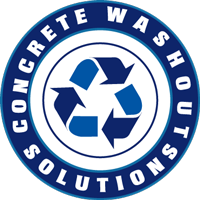
FREQUENTLY ASKED QUESTIONS
Tips for Managing Concrete Washout
If you work or manage a construction site, it’s important to keep a few things in mind as you’re managing your concrete washout. No matter what system you use to dispose of washout, our team of experts at Concrete Washout Solutions has a few tips for you. Keep your wash trucks and equipment in designated areas, direct wash water appropriately (away from storm drains or open water), and be sure to treat both concrete washout a
What Materials Are Found in Concrete Washout?
The slurry that results from concrete washout is full of toxic and hazardous materials including cement, grout, plaster, plastics, stucco, and other toxic metals. In fact, concrete washout wastewater has a pH over 12 — higher than ammonia and near the same pH level as pouring Drano into a storm drain.
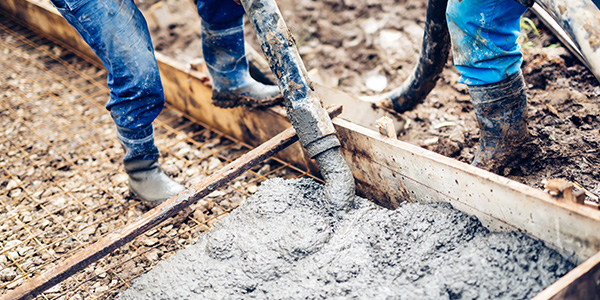
What Materials Are Found in Concrete Washout?
The slurry that results from concrete washout is full of toxic and hazardous materials including cement, grout, plaster, plastics, stucco, and other toxic metals. In fact, concrete washout wastewater has a pH over 12 — higher than ammonia and near the same pH level as pouring Drano into a storm drain.
How Does Concrete Washout Harm the Environment?
If concrete washout is not disposed of properly, it can result in the washout making its way to local waterways. This can lead to concrete burns, damage to vegetation, and more harmful consequences for surrounding ecosystems.
On-site workers can even experience harmful effects of concrete washout if it is not disposed of correctly, including skin irritation and damage to the eyes.
How Does Concrete Washout Harm the Environment?
If concrete washout is not disposed of properly, it can result in the washout making its way to local waterways. This can lead to concrete burns, damage to vegetation, and more harmful consequences for surrounding ecosystems.
On-site workers can even experience harmful effects of concrete washout if it is not disposed of correctly, including skin irritation and damage to the eyes.
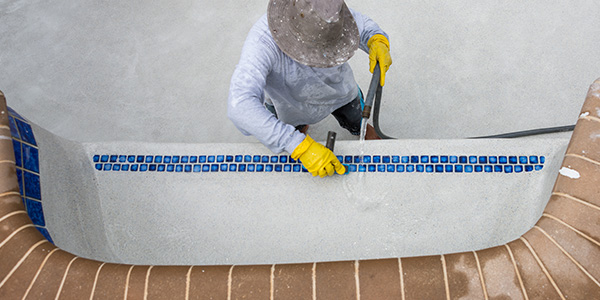
What Is the Holding Capacity of Concrete Washout Solutions’ Washout Containers?
At Concrete Washout Solutions, we offer both ramped and rampless washout containers. Our ramped washout containers have a holding capacity of 5.5 cubic yards or nearly 900 gallons of concrete washout.
Our rampless containers, on the other hand, hold up to six cubic yards or nearly 1300 gallons of concrete washout. This is enough holding capacity for the washout of nearly 45 concrete trucks.
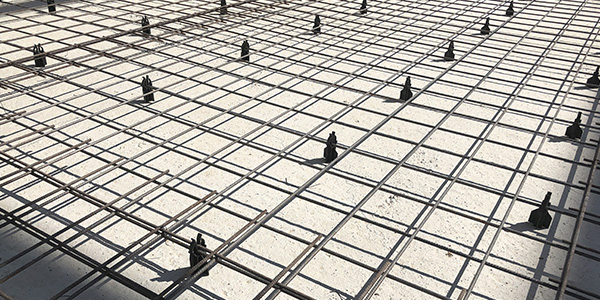
What Is the Holding Capacity of Concrete Washout Solutions’ Washout Containers?
At Concrete Washout Solutions, we offer both ramped and rampless washout containers. Our ramped washout containers have a holding capacity of 5.5 cubic yards or nearly 900 gallons of concrete washout.
Our rampless containers, on the other hand, hold up to six cubic yards or nearly 1300 gallons of concrete washout. This is enough holding capacity for the washout of nearly 45 concrete trucks.
What Are the Best Washout Practices?
The best way to keep concrete out of the local waterways is to keep your washout area at least 50 feet from streets, storm drains, open ditches, and streams. Contain the disposal to keep concrete from flowing down slope, use the washout area only for chutes, tools, and equipment, and install any necessary storm drain protection at inlets that are down slope from the washout area. Simply put, when it comes to concrete washout in New Jersey, it’s our mission to help you keep your local ecosystem safe.
What Are the Best Washout Practices?
The best way to keep concrete out of the local waterways is to keep your washout area at least 50 feet from streets, storm drains, open ditches, and streams. Contain the disposal to keep concrete from flowing down slope, use the washout area only for chutes, tools, and equipment, and install any necessary storm drain protection at inlets that are down slope from the washout area. Simply put, when it comes to concrete washout in New Jersey, it’s our mission to help you keep your local ecosystem safe.

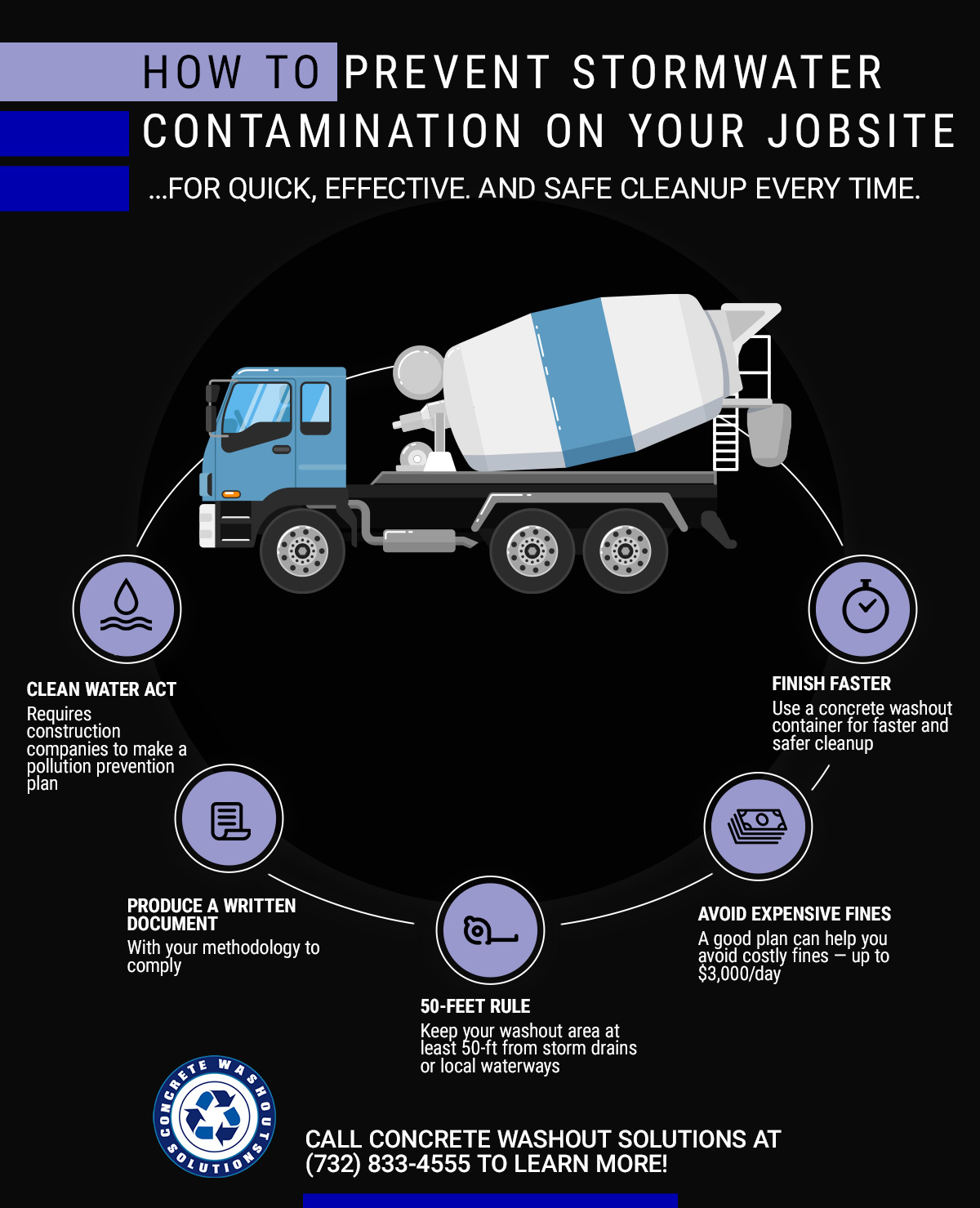
Why CWS Is the Responsible Choice for Concrete Washout in New Jersey
In order to avoid the potential hazards that concrete washout can have on the environment and local ecosystem, the responsible choice is to use a ramped or rampless washout container from Concrete Washout Solutions on your next job site. We used innovative technology and creativity to bring you the very best in efficient concrete washout containers. Get in touch with us at Concrete Washout Solutions in New Jersey today to learn more about our cost-effective and efficient solutions for your concrete washout wastewater.
What Are the Different Types of Concrete?
There are many different types of concrete used for various jobs, including high-strength concrete, high-performance, and ultra-high-performance concrete. Stamped concrete is the most popular choice for driveways, walkways, and patios. Other types of concrete include self-consolidating concrete, shotcrete, limecrete, vacuum concrete, glass concrete, polymer concrete, and the list goes on.
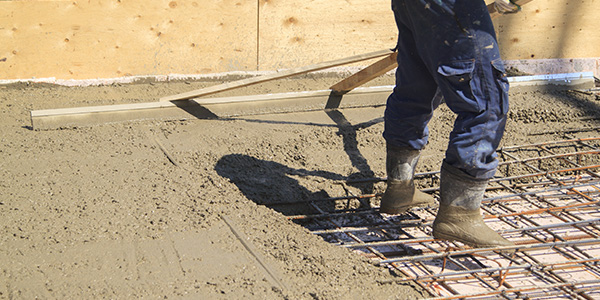
What Are the Different Types of Concrete?
There are many different types of concrete used for various jobs, including high-strength concrete, high-performance, and ultra-high-performance concrete. Stamped concrete is the most popular choice for driveways, walkways, and patios. Other types of concrete include self-consolidating concrete, shotcrete, limecrete, vacuum concrete, glass concrete, polymer concrete, and the list goes on.
What Are Concrete Washout Pits?
A concrete washout pit is a make-shift solution to concrete wastewater. It is a pit lined with plastic and hay bales, making it a cheap, but not always more effective alternative to concrete washout containers. Concrete washout pits are prone to tearing, difficult to maintain, and harsher on the environment.
What Are Concrete Washout Pits?
A concrete washout pit is a make-shift solution to concrete wastewater. It is a pit lined with plastic and hay bales, making it a cheap, but not always more effective alternative to concrete washout containers. Concrete washout pits are prone to tearing, difficult to maintain, and harsher on the environment.
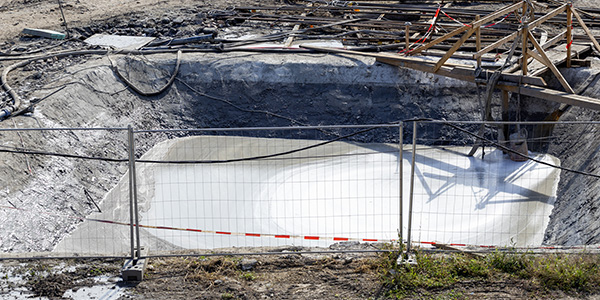
How Does Concrete Recycling Work?
Hardened concrete can be crushed, broken into pieces, and recycled into road base. Similarly, concrete solids can also be processed into road base. Wet concrete, on the other hand, can be poured for a variety of precast concrete products, washed into a reclaimer, or allowed to harden so that it can be crushed and used later.
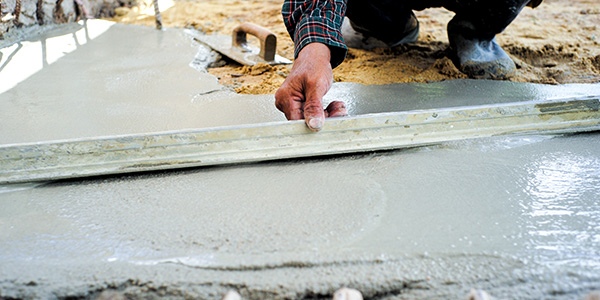
How Does Concrete Recycling Work?
Hardened concrete can be crushed, broken into pieces, and recycled into road base. Similarly, concrete solids can also be processed into road base. Wet concrete, on the other hand, can be poured for a variety of precast concrete products, washed into a reclaimer, or allowed to harden so that it can be crushed and used later.
Learn More About the Services/Products We Provide at CWS:
RAMPED WASHOUT CONTAINERS
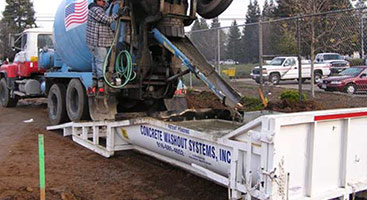
With a holding capacity of nearly 900 gallons, our ramped washout containers help prevent damage to your local ecosystem and keep your job site EPA-compliant.
RAMPLESS WASHOUT CONTAINERS
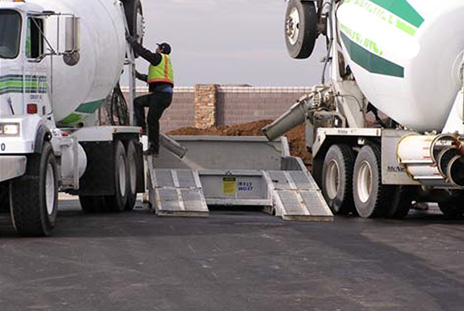
Maximize your space and get the most of your washout container with a 1300-gallon holding capacity, room for washout from nearly 45 cement trucks.
ENVIRO-VAC SYSTEM
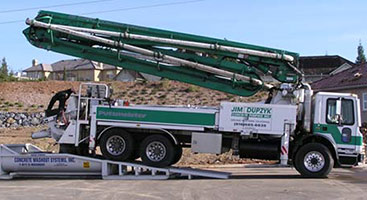
At CWS, we offer a patent-pending Enviro-Vac system that allows our drivers to vacuum the concrete wash water before removing and replacing the concrete washout container as needed.
Contact Us
"*" indicates required fields
